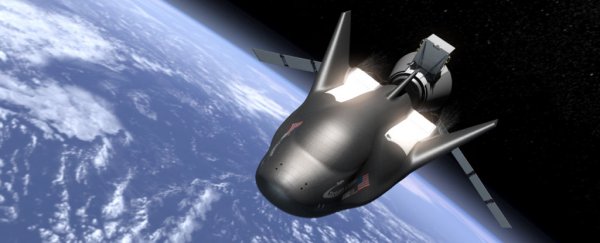The United Nations (UN) has announced its first ever official space mission, with the aim of giving developing countries the opportunity to conduct research in a microgravity environment.
The mission, which is intended to launch in 2021, will make use of a Dream Chaser spacecraft – a shuttle-like spaceplane that's currently in development by American aerospace firm Sierra Nevada Corporation (SNC).
The focus of the mission is to give developing nations – many of which don't have their own dedicated space operations or craft – a chance to develop and fly payloads for an extended duration in orbit.
The UN's Office of Outer Space Affairs (UNOOSA) made the announcement this week at the International Astronautical Congress (IAC) in Guadalajara, Mexico – the same event where Elon Musk made headlines yesterday by revealing his ambitious (and kind of crazy) plans to colonise Mars by launching thousands of SpaceX flights to the red planet.
While the UN's own mission doesn't provide the same level of sensationalism (or danger), there's no questioning the nobility of opening up space research to so many potential countries.
"One of UNOOSA's core responsibilities is to promote international cooperation in the peaceful use of outer space," said director of UNOOSA, Simonetta Di Pippo.
"I am proud to say that one of the ways UNOOSA will achieve this, in cooperation with our partner Sierra Nevada Corporation, is by dedicating an entire microgravity mission to United Nations Member States, many of which do not have the infrastructure or financial backing to have a standalone space program."
While the Dream Chaser itself is still a work in progress, it's getting very close to operational status. SNC expects to commence test flights later in the year, with a view to shuttling cargo to the International Space Station in 2019.
The company bills the Dream Chaser – which will be used for transporting cargo or passengers to low Earth orbit (LEO) – as the only reusable spacecraft "capable of landing at commercial airports or spaceports able to accommodate large commercial aircraft – anywhere in the world".
Categorised somewhat confusingly as a Space Utility Vehicle (SUV – no, not like yours), the craft can carry up to 5,500 kilograms of cargo, or transport up to seven passengers – so competition among UN members states to secure one of these tightly limited research slots could be considerable.
"We will continue to work closely with SNC to define the parameters of this mission which, in turn, will provide United Nations Member States with the ability to access space in a cost-effective and collaborative manner within a few short years," said Di Pippo. "The possibilities are endless."
As for the kinds of microgravity experiments or payloads developing nations will want to launch into space, that's up to them. The UN says it will brief interested countries on preparing research proposals, and will ask member states to pay a pro rata cost for mission expenses, based on their payload (and each country's ability to pay).
"While these experiments may seem small to us, if you go to these countries you realise this is perhaps one of the biggest things they've ever done," corporate vice president of Sierra Nevada's Space Systems, Mark Sirangelo, told media at the announcement.
"The young researchers that will be working on this [mission] all around the world will be able to say that they are part of the space community."
And not only that, but expanding the space community as we know it to include virtually every country on Earth that wants to participate in microgravity research can only be a good thing.
We're not sure exactly how Star Trek's United Federation of Planets got started, but the inclusive spirit of that enterprise surely looked a lot like this.
"In a few short years this UN space mission will provide member states with the ability to access space in a cost-effective and collaborative manner," said Di Pippo.
"Space science helps us solve issues that are collective in their nature and can lead us to solutions that go beyond borders. All of us will benefit from this mission."
